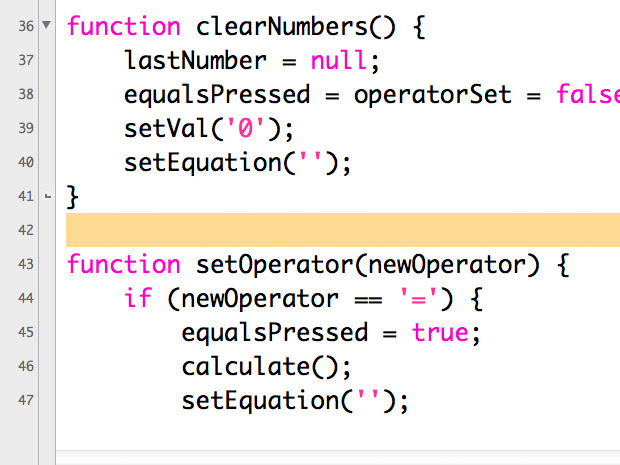Professional-Development Tips for Developers
— February 6, 2017The Ultimate Guide to Developer Professional Development
Great developers hold a unique status in the tech industry. Their skills are constantly in demand, they enjoy exceptional benefits, and they often work with innovative companies ranging from startups to global enterprises. However, becoming a top-tier developer takes time and effort. It requires mastering key technical and soft skills, cultivating productive habits, and adopting a mindset of continual growth. These elements are crucial for developers aspiring to excel in their field and advance their careers.
With IT unemployment at a low 2.6 percent, opportunities for talented developers are plentiful, but competition remains intense. Programmers must focus on sharpening their skills and maintaining a competitive edge. Drawing insights from industry experts, hiring project managers, and experienced developers, this article explores the essential skills and strategies necessary for professional growth.
Continuous Learning Is Non-Negotiable
Technology evolves rapidly, making continuous learning essential for staying relevant. Developers must consistently expand their knowledge, whether through books, online courses, workshops, boot camps, or meetups. Attending conferences and engaging in internal training programs or open-source projects are also valuable approaches.

Robert Treat, CEO of OmniTI and a developer with over 15 years of experience, emphasizes this point. “The state of software development changes so quickly that aspects of today’s technology will likely be different in five years and potentially obsolete in a decade. Developers must actively explore new tools and technologies outside their immediate job requirements.” For developers, where demand for versatile talent is high, staying ahead of trends can be a significant competitive advantage.
Side projects and involvement in open-source communities are practical ways to embrace continuous learning. By exploring new methodologies and tools, developers enhance their skill sets and adaptability, which are critical for long-term career success.
Sharpening Problem-Solving Abilities
Problem-solving skills are pivotal in the software development profession. Employers often prioritize a candidate’s ability to tackle complex issues over expertise in a specific programming language. Tracy Cashman, Senior Vice President of WinterWyman’s IT Search division, notes that some companies use logic puzzles or problem-solving exercises during interviews to evaluate a candidate’s creativity and adaptability.

These skills are particularly valuable in environments where developers work with multiple programming languages and frameworks. Strong problem-solving capabilities enable developers to transition seamlessly between diverse projects and tasks. Investing time in honing logical thinking and analytical abilities can significantly enhance a developer’s professional appeal.
Communication and Interpersonal Skills Are Essential
Gone are the days when developers could work in isolation with minimal interaction. Modern development roles often require collaboration across teams, making strong communication skills indispensable. This trend is especially pronounced in agile development environments, where teamwork and open communication are foundational.
Tracy Cashman explains, “Most development roles today require interpersonal skills due to the collaborative nature of agile methodologies. Developers may need to participate in paired programming, team discussions, and direct interactions with stakeholders.”
Senior developer Brian Dunavant highlights the importance of empathy in communication. “As an experienced developer, it’s easy to become impatient with user bug reports or questions from junior colleagues. However, addressing these situations with patience fosters learning opportunities and strengthens team dynamics.” Effective communication also enhances client interactions, a critical factor in outsourcing contexts, where clear and concise collaboration drives project success.
The Role of Networking and Personal Branding
Networking remains one of the most effective ways to discover job opportunities. For developers, building a strong personal brand can further enhance visibility and credibility. This involves more than simply updating a LinkedIn profile; it requires actively engaging with the tech community and showcasing expertise.
According to Cashman, “Many developers underestimate the importance of networking. Attend meetups, conferences, and tech events to expand your circle. A well-maintained LinkedIn profile and participation in online discussions can also attract potential employers.”
Robert Treat suggests that technical blogs can play a significant role in personal branding. “Publishing insights about your projects and lessons learned demonstrates expertise and dedication. This can draw attention from hiring managers and industry peers.”
Emphasizing Code Quality and Documentation
Clean, well-documented code is a hallmark of professionalism. Poorly formatted or inadequately documented code creates unnecessary hurdles during troubleshooting and collaboration. Developers should prioritize clarity and consistency in their work.
Robert Treat advises focusing on the end goal of making projects accessible for new contributors. “Clean code and proper documentation facilitate seamless onboarding and ensure project maintainability. Automating tasks like syntax checks and code formatting can also improve efficiency.” George Liu, founder of Tellahilim LLC, adds, “High-quality code reflects respect for the craft and the client.”
By adhering to rigorous coding standards, developers can build a reputation for excellence, an asset particularly valued in outsourcing scenarios where team members often collaborate remotely.
Mastering Naming Conventions for Better Readability
Naming conventions may seem trivial, but they significantly impact code readability. Developers should adopt consistent strategies for naming functions, variables, and other elements. Leon Fayer of OmniTI explains, “The key is linguistic consistency. A clear and meaningful naming pattern ensures readability for anyone inheriting the code.”
This practice is especially crucial in team settings, where multiple developers work on the same project. Standardized naming conventions reduce confusion and streamline collaboration.
Understanding Agile Methodologies
Agile development practices have become the norm across most organizations. Familiarity with these methodologies is now a baseline expectation for developers. Tracy Cashman highlights the importance of adaptability in iterative environments. “Companies look for developers who can thrive in fast-paced, agile settings.”
Robert Treat emphasizes the need to grasp not only agile principles but also related practices like continuous delivery and deployment. Developers should invest time in understanding these concepts to align with modern development workflows effectively.
Exploring Mobile Development Skills
Mobile application development is a growing field with substantial demand. While not mandatory for every developer, gaining experience in mobile technologies can open new career opportunities. “Mobile platforms are rapidly replacing traditional desktop environments,” Treat notes. “Understanding responsive design and mobile-first methodologies is increasingly important.”
For developers in markets like Vietnam, where mobile-first strategies dominate, expertise in mobile development can provide a significant edge. Familiarity with Android and iOS platforms, along with cross-platform tools, ensures broader career prospects.
Project Management for Career Growth
As developers progress in their careers, project management skills become increasingly valuable. Understanding how to oversee projects enables developers to influence outcomes more effectively. Treat advises, “Familiarity with project management methodologies ensures developers contribute meaningfully to the planning and execution process.”
Project management knowledge also enhances career mobility, preparing developers for leadership roles. This skill set is highly relevant in outsourcing scenarios where managing timelines, resources, and client expectations is critical.
Front-End Development Skills: A Strategic Advantage
Proficiency in front-end technologies like JavaScript, CSS, and HTML5 can make developers more versatile. In smaller organizations, developers may need to handle both back-end and front-end tasks. Cashman observes, “While not always required, strong Web/UI skills can set candidates apart during job searches.”

Developers who can address both technical functionality and user experience bring added value to their teams. For outsourcing firms, this versatility is particularly beneficial.
Conclusion
Becoming a highly sought-after developer requires more than technical expertise. It involves a commitment to continuous learning, problem-solving, effective communication, networking, and maintaining high standards of work. Developers who cultivate these skills position themselves for long-term success and leadership opportunities. In dynamic industries like tech outsourcing, these qualities are even more critical, as they directly influence project outcomes and client satisfaction. By investing in their professional development, developers can navigate the challenges of a rapidly evolving industry and achieve their career aspirations.











